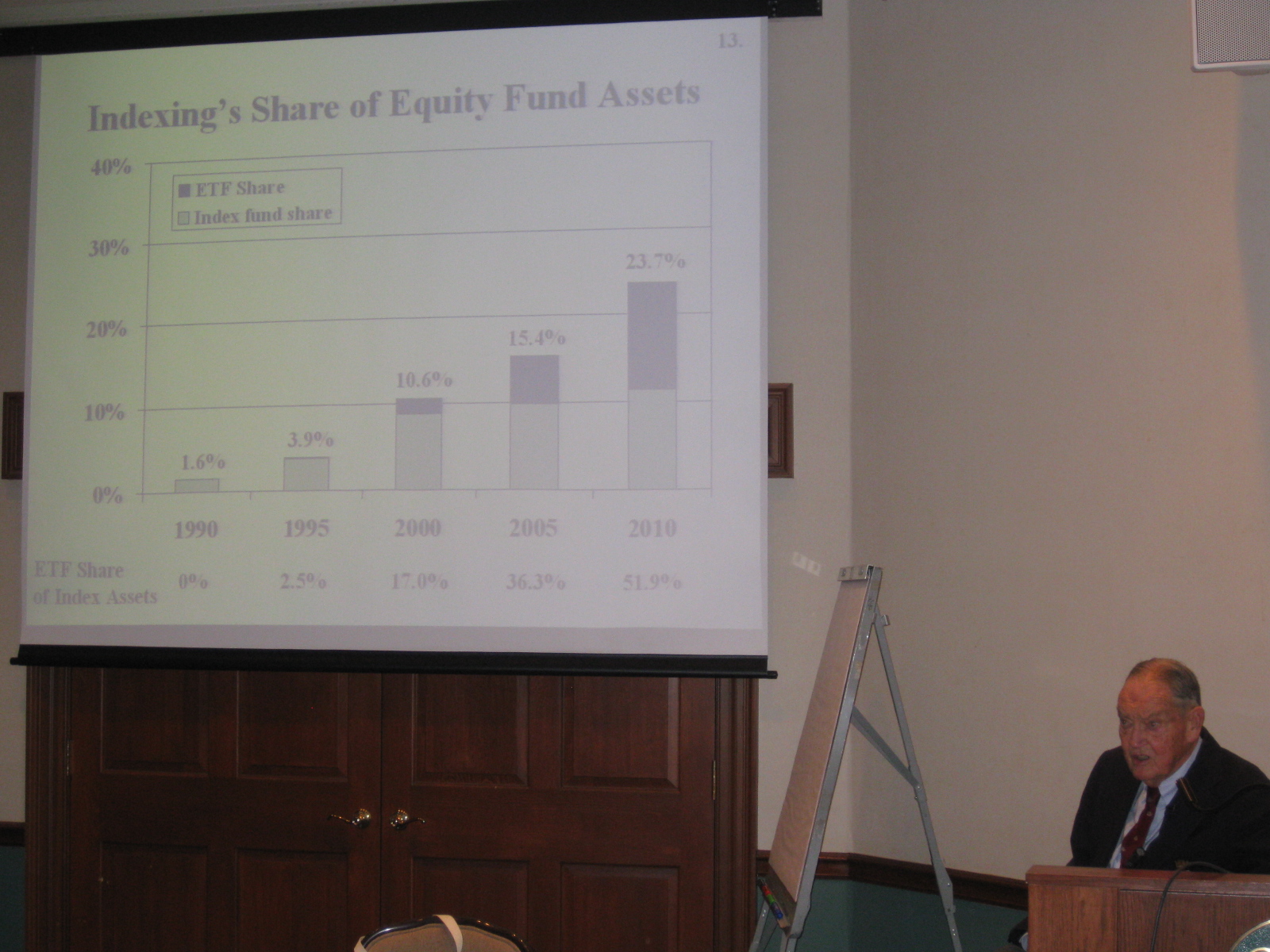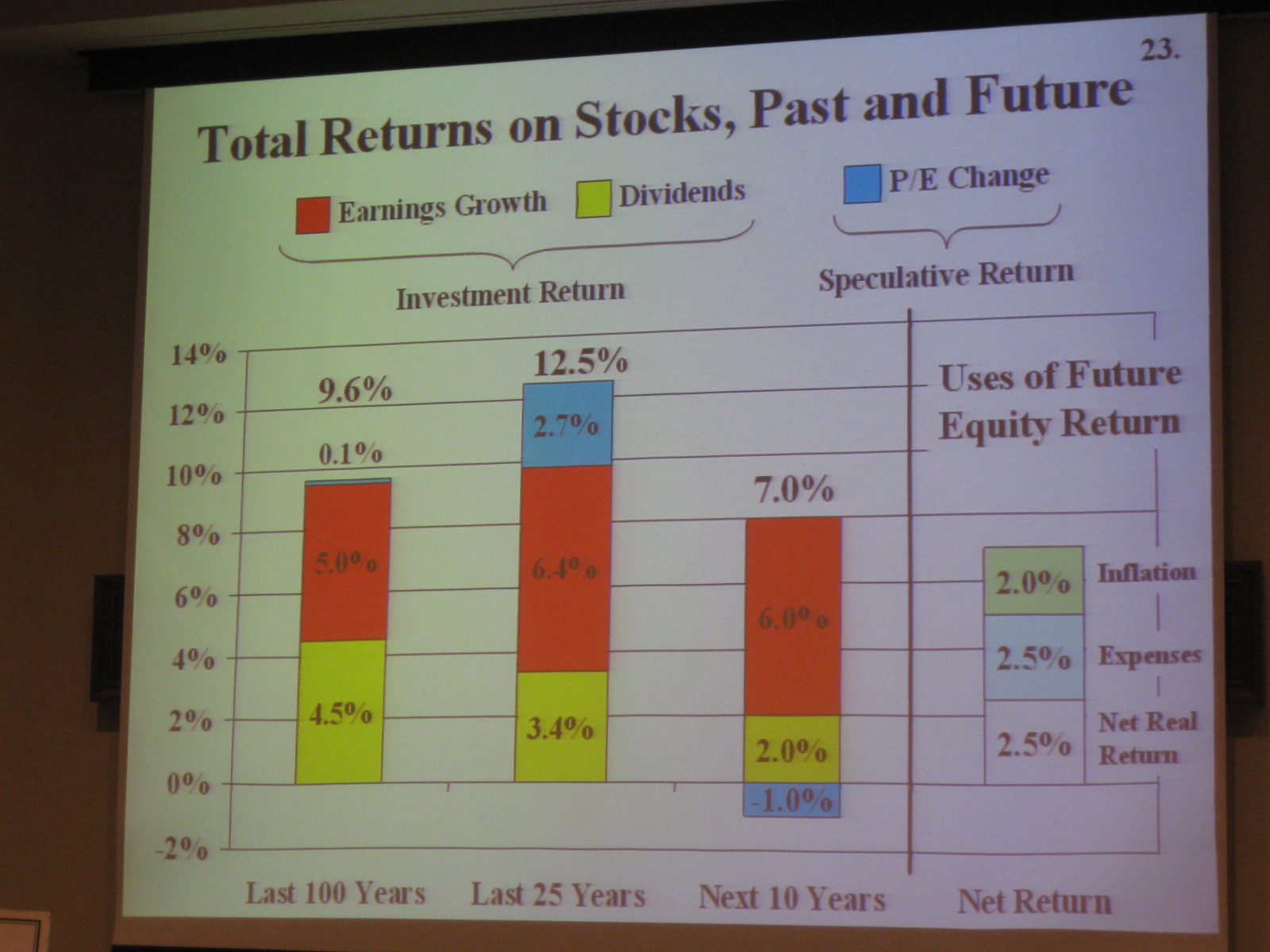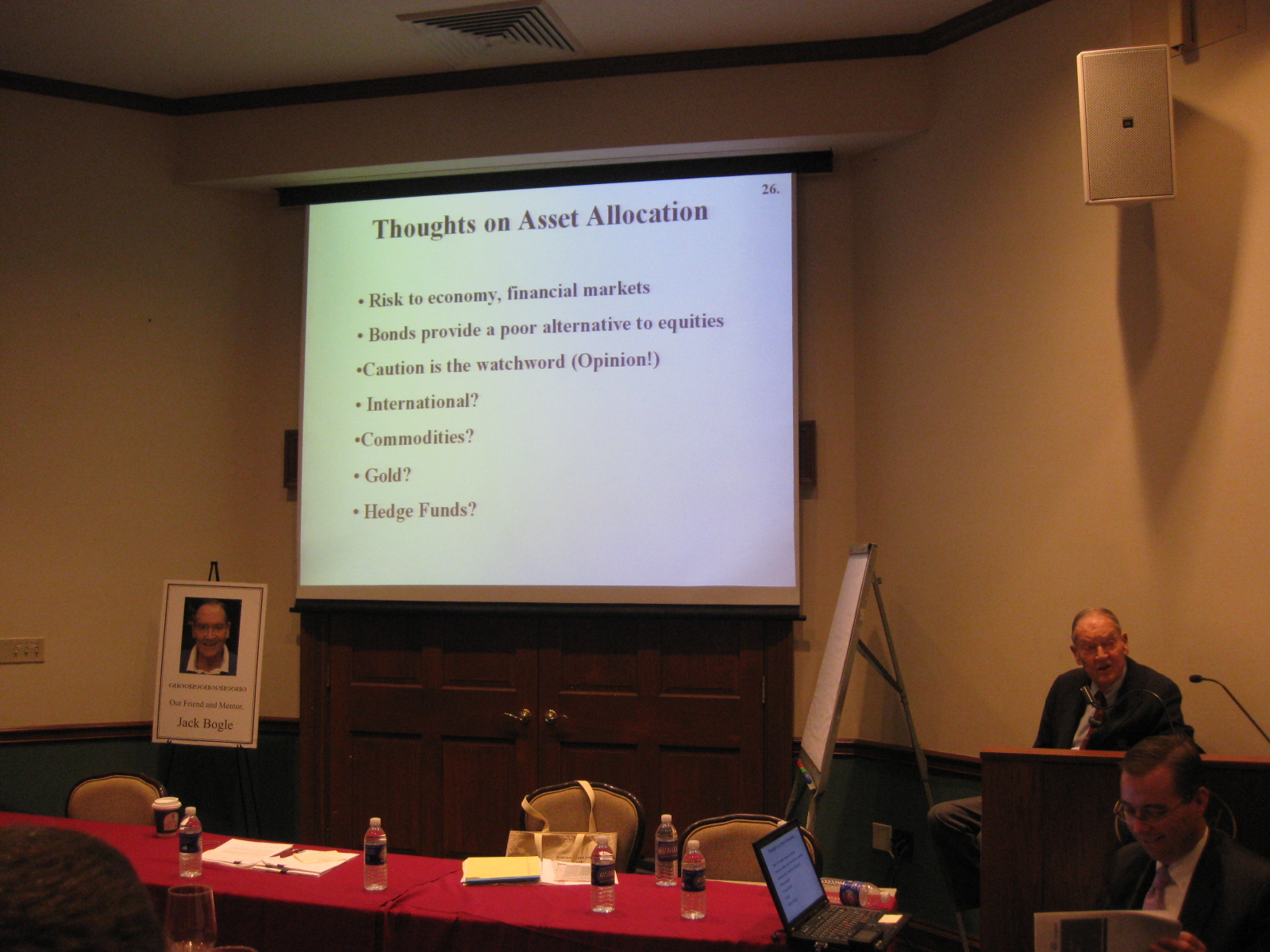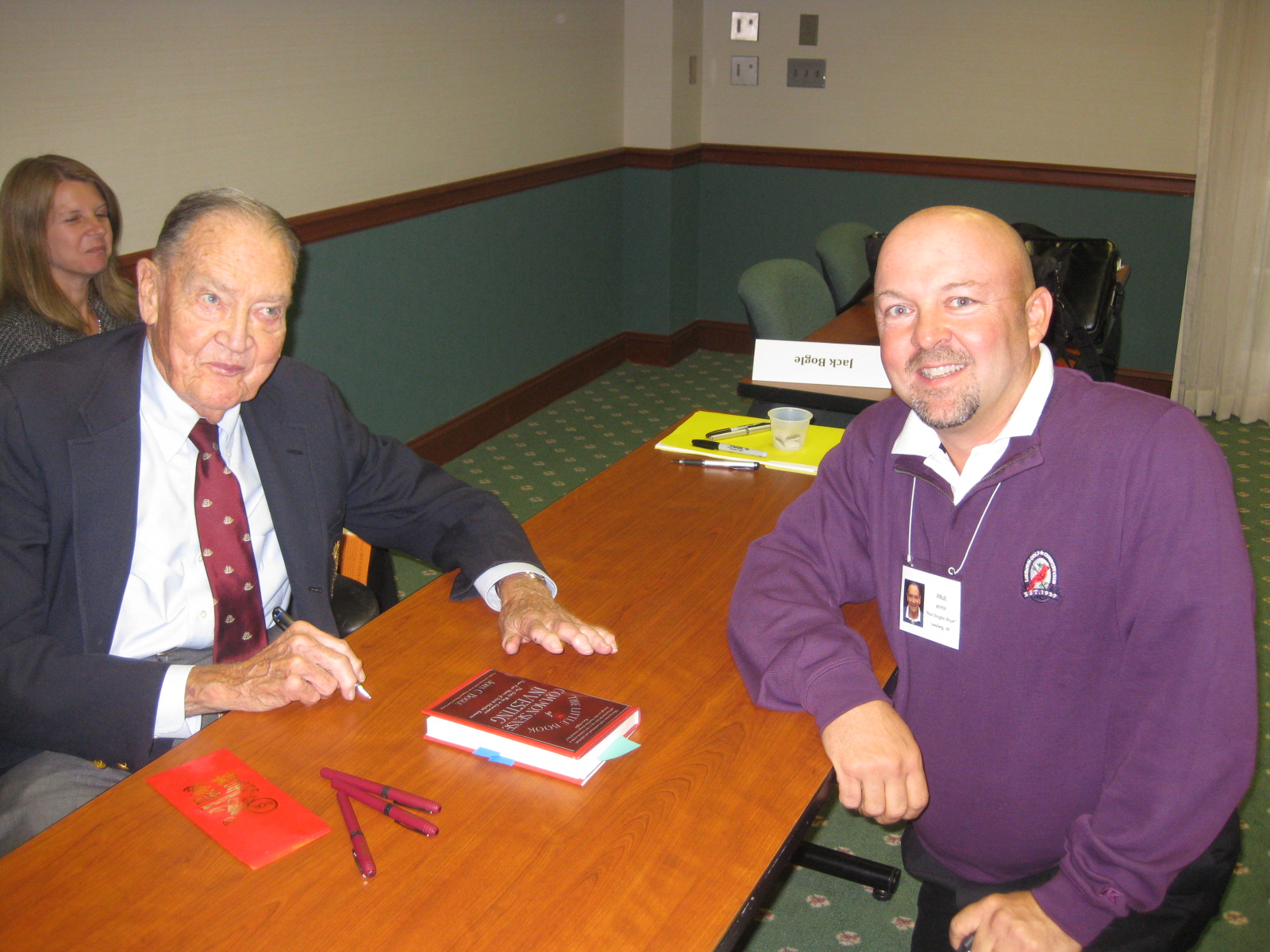Some Observations From Bogleheads 9 and From Jack Bogle Himself
I have the rare privilege of attending the Bogleheads 9 reunion in Philly this year. I wanted to attend the one much closer to my home a couple of years ago, but was way too late in registering. They only let 120 or so folks attend these things. So I registered early enough this year and I thought it might be helpful if I could share some of the things I’ve heard today and will hear tomorrow. At least I’ll be able to remember them better this way.

Today (Thursday, 14 October) was basically Jack Bogle Day. Sure, we heard some about how the Bogleheads got started and we even took the time to go around the meeting room and have every person in attendance tell something about themselves. In addition to Jack Bogle, also in attendance are some authors of investing books you may know: Bill Bernstein, Bill Schultheis, Rick Ferri, and the authors of the various Bogleheads books.
But immediately after the introductions, Jack showed up a little early. Don’t think me presumptuous for using his nickname, that is what he prefers. He spoke with some prepared remarks for about an hour or so and then took questions for another hour or so. We had lunch, then he and Bill Bernstein answered some more questions. He then gave each of us a copy of his new book “Don’t Count On It!” Subtitled Reflections on Investment Illusions, Capitalism, “Mutual” Funds, indexing, Entrepreneurship, idealism, and Heroes. Then we stood in line to have Jack sign his name and we spoke with all of the other authors present.
Here are some representative notes and quotes I took from Jack’s talk.
“Mutual fund companies are run for the benefit of the managers and not the benefit of investors.” Except, of course, one mutual fund company…
“Last year Fidelity managers made $2.6B and Vanguard managers made $0.” [Correction: he said Fidelity’s earnings were $2.6B]
He showed a chart of how Vanguard’s average expense ratio keeps dropping. But noted that now with the size of assets under management, one basis point equals $140M. So it would be easy to say, “Let’s spend $140M on something, they’ll never know.” So Jack recommends they think in terms of dollars and not in terms of basis points.
He said, “Keeping expenses low is a simple, moronically simple, yet it is an idea that nobody thought of.”

He said that in 2010, ETF’s share of the index market matches the index fund share. ETF share of index assets is 51.9%
On the topic of holding assets for the long term, he said, “One firm holds its assets for an average of 11 seconds. I don’t know how you feel about that, but that’s not long term investing.”
“There is no place to hide these days. Never seen anything like it. Assuming we don’t have a big disaster, which is a big assumption to me, we will see 2.5% real returns on equities in future (after inflation and expenses).”

“Gold was a terrible investment over 100 years. Rank speculations. I am almost tempted to buy gold but I won’t. 1 or 2 or even 5% to play with is OK.”

“I am a little worried about the risks that are still out there. US Financials is a mess. Pensions are bankrupt. Don’t see how they will get 8%. Wall St. Values are in tatters. America has lost ability to govern itself. I find a lot of resonance when I speak about values. I find young people are seeking something nobler. I am hoping to make a tiny difference in values. To get a financial system that works for all of you and not Wall St.”
“Rebalance? Data says don’t bother. Maybe if you need a 50/50 portfolio and it gets to 60/30 then rebalance if you need to.”
“The power of money in Washington is disgusting.”
“I think about what is going on with Emerging Market funds. They are among the largest ETFs. The Data said 33% of all EM holdings were in ETFs. Makes me worried because ETF owners are traders. Suppose something happens to Brazil and traders decide to get out. Could be a big… Still, in the long run that should not matter. If EM is held up by Mutual fund demand, when they go it could cause trouble. Vanguard should be careful when getting into these funds.”

Finally, Bill Schultheis, the author of The Coffeehouse Investor, stood up and asked a question of Jack and Bill Bernstein. It was about the disaster of 401K plans for the average citizen. How they don’t understand how to invest their own money. And would Jack and Bill recommend a more managed approach. Bill answered first and said, “The less autonomity the better. Don’t let people run their own funds. I want a big maternalistic approach.” Jack basically agreed and listed a few points about 401(k) plans: “1. You’re going to borrow money from it 2. You will take it out. 3 you don’t have to contribute to it 4. The investor has no guidance . With the average 401k being $54,000, have a great retirement.” Jack prefers the idea of a privatized personal retirement plan like former President George W. Bush initially suggested.

I asked Jack about his thoughts on the future of the US Dollar and the Federal debt and how that would affect the investor. Would we see hyperinflation? He answered that currency speculation is not something to get into. That we would want the dollar to fall relative to China. That China owns a large amount of our bonds and they may fall in value if interest rates rise. He repeated that he should probably buy some gold for insurance (against the US Dollar) but that he is just “too busy” to do it.
It has been great being here at the Bogleheads 9 reunion. Everyone is nice to talk with and with such a small gathering, we have lots of time to talk to everyone.

 Join us on Facebook
Join us on Facebook Follow us on Twitter
Follow us on Twitter